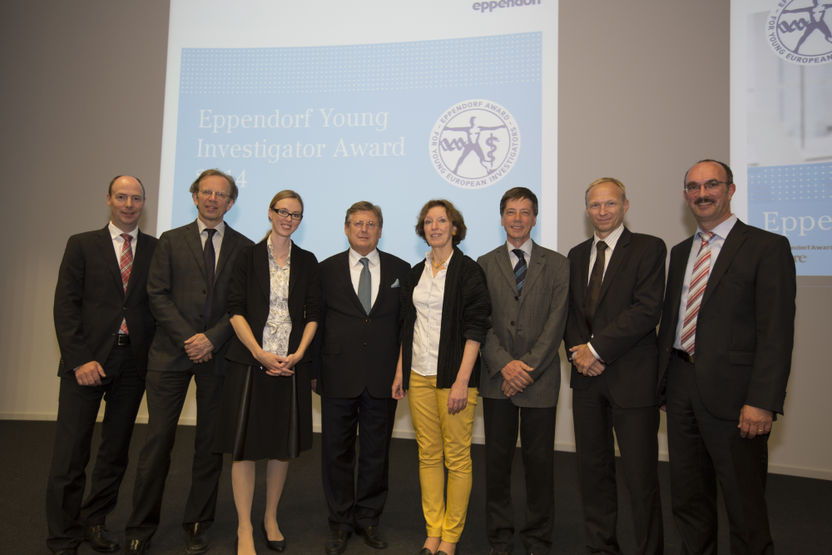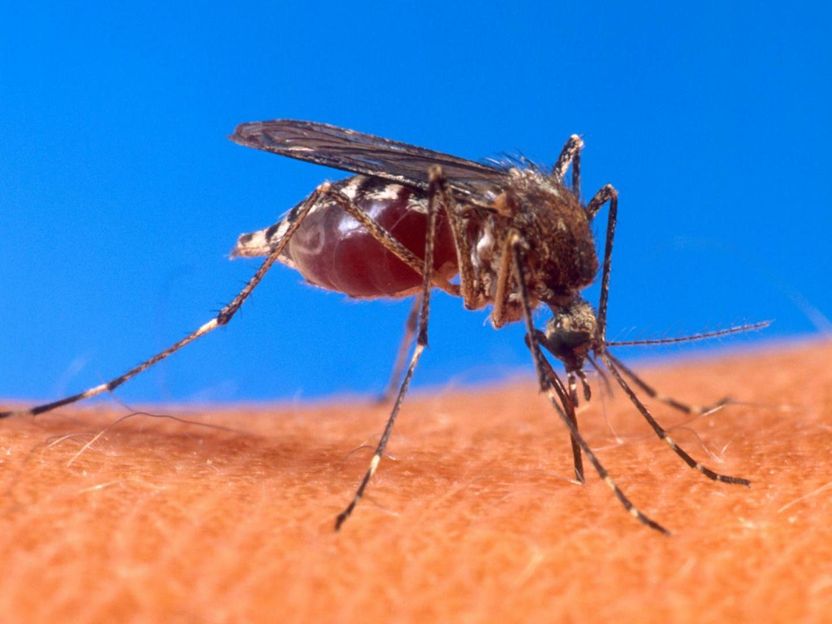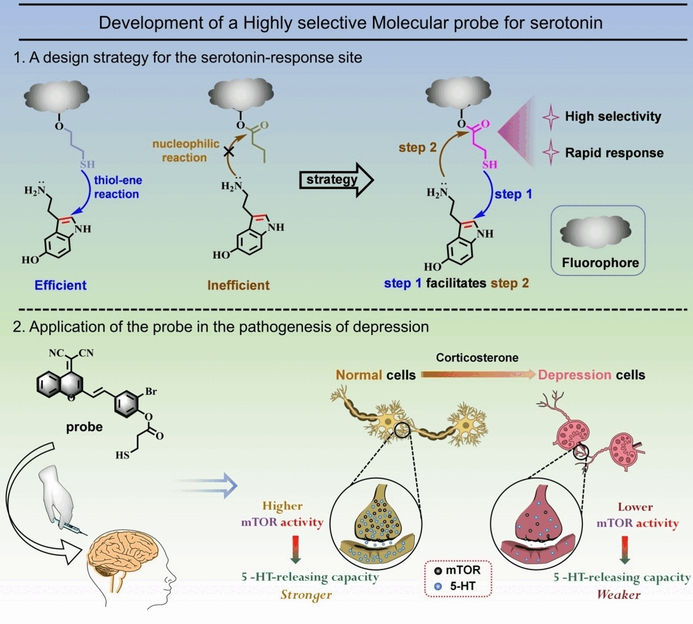This year’s research prize awarded by Eppendorf goes to Austria
Presentation of the 2014 Eppendorf Award for Young European Investigator to Madeline Lancaster
The American scientist Madeline Lancaster, Ph. D. (Marie Curie Postdoctoral Research Fellow, Laboratory of Jürgen Knoblich at the Institute of Molecular Biotechnology of the Austrian Academy of Sciences, IMBA, Vienna, Austria) has won the 2014 Eppendorf Award for Young European Investigators.

From left to right: Wilhelm Plüster (Eppendorf AG), Martin Lohse (Institute for Pharmacology and Toxicology, University of Würzburg), Madeline Lancaster (Award Winner 2014), Dieter Häussinger (Clinic for Gastroenterology, Hepatology and Infectiology), Maria Leptin (EMBO Director), Reinhard Jahn (Director MPI for Biophysical Chemistry), Mathias Wenisch (Eppendorf AG), Axel Jahns (Eppendorf AG)
©EMBL Photolab
Madeline Lancaster, born 1982, receives the Eppendorf Award for her work showing that complex neuronal tissues resembling early states of fetal human brain can be created in vitro from pluripotent stem cells. Her groundbreaking experiments allow for the first time to recapitulate the development of brain structures in a three-dimensional organoid. Madeline Lancaster also documented that diseases caused by aberrant development such as microcephaly can be reproduced in the organoid culture. These discoveries allow for novel approaches towards the understanding of neurological diseases.
With the 15,000 Euro Eppendorf Young Investigator Award which was established in 1995, Eppendorf AG honors outstanding work in biomedical research and supports young scientists in Europe up to the age of 35. The Eppendorf Award is presented in partnership with the scientific journal Nature. The Award winner is selected by an independent committee composed of Prof. Reinhard Jahn (Max Planck Institute for Biophysical Chemistry, Göttingen, Germany), Prof. Dieter Häussinger (Clinic for Gastroenterology, Hepatology and Infectiology, Düsseldorf, Germany), Prof. Maria Leptin (EMBO, Heidelberg, Germany) and Prof. Martin J. Lohse (Institute for Pharmacology and Toxicology, University of Würzburg, Germany).
The Award ceremony took place at the EMBL Advanced Training Centre in Heidelberg, Germany, on May 22, 2014. The laudatio honoring Madeline Lancaster’s achievements was held by the jury chairman Prof. Reinhard Jahn.
Madeline Lancaster: “The human brain exhibits dramatic evolutionary and developmental expansion, a process that has been difficult to examine in traditional animal models. In order to gain insight into this uniquely human process, my work focuses on the use of a 3D in vitro model system of human brain development, termed cerebral organoids, to examine regulators of brain size in the context of human evolution and neurodevelopmental disease. This Award is a recognition of the potential of stem cell technologies to model human development and disease. It is a testament to the power of combining diverse fields to shed light on key questions, and it would not have been possible without the important contributions of our collaborators, and the supportive environment of the Knoblich group and IMBA.”
Most read news
Other news from the department science

Get the life science industry in your inbox
By submitting this form you agree that LUMITOS AG will send you the newsletter(s) selected above by email. Your data will not be passed on to third parties. Your data will be stored and processed in accordance with our data protection regulations. LUMITOS may contact you by email for the purpose of advertising or market and opinion surveys. You can revoke your consent at any time without giving reasons to LUMITOS AG, Ernst-Augustin-Str. 2, 12489 Berlin, Germany or by e-mail at revoke@lumitos.com with effect for the future. In addition, each email contains a link to unsubscribe from the corresponding newsletter.
Most read news
More news from our other portals
Last viewed contents
Phase III development of Antisoma's ASA404 in lung cancer extended to Japan
Transgene Receives FDA Fast Track Status for TG4010 for Treatment of Non-Small Cell Lung Cancer

A synthetic antibiotic may help turn the tide against drug-resistant pathogens - "This isn't just a cool new molecule, it's a validation of a novel approach to drug discovery"

Dräger AG Invests in Digital Health Startup GWA Hygiene - Digital hygiene solutions for hospitals
List_of_potato_diseases

Genetic Engineering without Unwanted Side-Effects Helps Fight Parasites - A live vaccine for toxoplasmosis

Going viral: Insights on Zika
Cell Biosciences Signs Agreement to Acquire Alpha Innotech
Findings on pollution damage to human airways could yield new therapies

New infection mechanism in coronavirus discovered - Results provide starting point for development of antiviral therapies
How obesity drives colon cancer in mice






















































